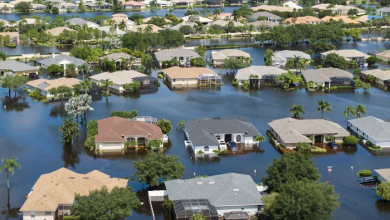
Choosing the right disposal bin size is a big deal. Renting a bin that’s too small means you’ll likely need a second one, which doubles your cost. On the flip side, a bin that’s way too big is just a waste of money. It’s all about matching the bin to your specific job.
Assess Your Project Scope
Think about what you’re actually getting rid of. Are you just doing a quick garage cleanout, or are you tearing down a whole kitchen? For smaller jobs like decluttering an attic or clearing out a shed, a smaller bin, maybe 10 to 12 cubic yards, is usually plenty. If you’re dealing with a basement renovation or a medium-sized remodel, you’ll probably need something in the 15 to 20 cubic yard range. Bigger projects, like a major home renovation or a roof replacement, will definitely need a larger disposal bin, often 30 cubic yards or more.
Consult With Rental Providers
Don’t guess when it comes to bin size. The rental companies have seen it all, and they can offer solid advice. Tell them exactly what kind of project you’re undertaking and what materials you expect to generate. They can help you figure out the best disposal bin size, saving you from potential headaches and extra charges down the line. This consultation is a free resource that can prevent costly mistakes.
Understand Different Bin Capacities
Disposal bins come in various sizes, usually measured in cubic yards. It’s helpful to have a general idea of what these capacities mean for your waste. A 10-yard bin might hold about 4 pickup truck loads, while a 30-yard bin could hold around 12 pickup truck loads. Knowing these differences helps you visualize how much waste your project will create and match it to the right bin capacity. Always confirm the exact dimensions and capacity with your chosen provider.
Understanding Bin Rental Costs And Fees
Inquire About All-Inclusive Pricing
When looking into disposal bin rentals, it’s smart to ask about what’s included upfront. Many companies offer pricing that covers delivery, pickup, and a certain weight limit. This kind of all-inclusive pricing can help you budget better and avoid surprises down the line. Always confirm what the base rental fee covers to get a clear picture of the total cost for your disposal bin needs.
Clarify Weight Limit Restrictions
Disposal bin rentals often come with weight limits. Exceeding these limits can lead to significant extra charges, so it’s important to understand them before you start filling the bin. Heavy materials like concrete, soil, or large amounts of metal can quickly add up. Ask your rental provider about the specific weight restrictions for the bin size you choose and consider how your project’s waste might impact the total weight.
Be Aware Of Potential Surcharges
Beyond weight limits, other factors can trigger surcharges. These might include extending the rental period beyond the agreed-upon time, disposing of prohibited items, or needing special handling for certain types of waste. Always ask for a detailed quote that outlines all potential fees. Understanding these possibilities helps you manage your disposal bin rental effectively and avoid unexpected expenses.
Maximizing Your Bin Rental Efficiency
Properly Load Your Bin
When you rent a disposal bin, how you fill it makes a big difference. Think of it like packing a suitcase; you want to fit as much as possible without making a mess. Start by placing larger, flatter items at the bottom. This creates a base and helps prevent smaller, lighter materials from shifting around too much. Then, fill in the gaps with smaller debris. This method helps you maximize the space within the bin, potentially saving you from needing a second rental. It’s about smart packing to get the most out of your disposal bin.
Break Down Large Items
Big, bulky items can take up a lot of room in your disposal bin. Furniture, mattresses, or large pieces of wood might seem impossible to fit efficiently. Before tossing them in, take a moment to break them down. For example, a couch can often be dismantled into smaller sections. Wood can be cut into manageable lengths. This simple step makes a huge difference in how much waste you can fit into a single bin. Breaking down items is key to efficient disposal bin use.
Avoid Overfilling The Container
It might seem like a good idea to stuff that last bit of trash into the disposal bin, but overfilling can lead to extra costs. Rental companies have weight limits and fill lines for a reason. If your bin is too full, it can be unsafe to transport, and you might be charged a hefty fee or even have the pickup refused. Always respect the fill line marked on the bin. Keeping your waste below the rim is crucial for avoiding unexpected charges and ensuring a smooth pickup. This practice helps maintain safety and keeps your disposal bin rental costs down.
Strategic Scheduling For Bin Rentals
Book Your Bin in Advance
Waiting until the last minute to book a disposal bin can lead to higher prices and limited availability, especially during busy seasons. Planning ahead allows for better selection of bin sizes and more flexible scheduling around your project timeline. This proactive approach helps avoid rushed delivery surcharges and ensures you get the bin you need, when you need it.
Determine the Optimal Rental Duration
Keeping a bin longer than necessary adds to the overall cost. It’s smart to estimate how long your project will take and schedule the pickup accordingly. If you think you might need a bit more time, contact the rental provider in advance to discuss extensions and avoid potential late fees. This careful consideration of rental duration is key to managing your budget effectively.
Consider Off-Peak Booking Times
Just like airline tickets or hotel rooms, disposal bin rentals can sometimes be cheaper during less busy periods. If your project schedule allows, booking a bin during weekdays or outside of major holidays might result in lower rates. Always ask your provider if there are any discounts available for off-peak bookings. This simple step can lead to noticeable savings on your bin rental.
Careful planning around your bin rental is more than just convenience; it’s a direct way to cut down on unnecessary expenses. Thinking through the timing of delivery, your project’s duration, and potential off-peak opportunities can significantly impact the final bill. Don’t underestimate the power of strategic scheduling when it comes to managing waste disposal costs.
- Secure your preferred bin size early.
- Align delivery and pickup with your project’s actual needs.
- Inquire about potential savings for off-peak rentals.
Responsible Waste Disposal Practices
Identify Prohibited Materials
When you rent a disposal bin, it’s important to know what you can and cannot throw into it. Most everyday junk and common renovation debris are usually fine. However, certain items are restricted due to environmental or safety concerns. Always check with your rental provider about prohibited materials before you start filling the bin. This prevents headaches and potential extra charges later on.
Commonly prohibited items include hazardous waste like paint or chemicals, electronics such as old TVs or computers, and appliances containing Freon. Medical waste and batteries are also typically on the no-throw list. Being aware of these restrictions helps ensure responsible waste disposal.
Separate Recyclable Items
Many disposal bin rental companies now sort waste after pickup. This means you can help the environment and potentially reduce costs by separating recyclable items. Think about materials like metal, cardboard, wood, and certain plastics. If you have a lot of these, ask your provider if separating them is beneficial.
Some companies can process yard waste into compost or crush concrete and asphalt for reuse. Taking a few extra minutes to sort can make a big difference in how your waste is managed. This practice supports eco-friendly waste disposal.
Inquire About Eco-Friendly Options
Don’t assume all disposal bin services are the same. Some companies actively focus on recycling and sustainable waste management. Asking about their eco-friendly options can lead to better disposal practices. This might involve them sorting materials at their facility or offering specific bins for recyclable waste.
Choosing a provider that emphasizes recycling not only benefits the environment but can also sometimes translate into cost savings. It’s a smart way to handle your waste responsibly while supporting businesses that care about sustainability. This is a key part of responsible waste disposal.
Smart Bin Rental Placement And Logistics
Check Local Permit Requirements
Before you even think about where to put your disposal bin, it’s wise to check if your local municipality requires a permit. This is especially true if you plan to place the bin on public property, like a street or sidewalk. Ignoring this step could lead to fines. Always verify permit needs with your city or town hall.
Most of the time, if the bin stays on your private property, like a driveway or yard, you won’t need a permit. However, rules vary, so a quick call or website check can save you a headache later. This is a key part of smart bin rental logistics.
Ensure Easy Access For Pickup
Think about how the rental company will get the bin out. They use large trucks, and these trucks need space to maneuver. Placing the bin in a spot that’s easily accessible for pickup is vital.
Avoid blocking driveways, mailboxes, or narrow gates. If the truck can’t get to the bin easily, it might cause delays or even extra charges. Consider the path the truck will take to reach the bin, not just the bin’s final spot.
Protect Your Property From Damage
Disposal bins are heavy, especially when full. Placing them directly on your driveway or lawn can cause damage. Think about using protective materials underneath the bin. This is a simple step that can prevent costly repairs.
Using sturdy plywood or thick boards under the bin’s wheels or base can distribute the weight. This protects surfaces like asphalt, concrete, or grass from cracks, gouges, or permanent indentations. It’s a small effort for significant property protection.
Collaborative Bin Rental Strategies
Share A Bin With Neighbors
Got a big cleanup coming up? Maybe your neighbor does too. Instead of both of you renting separate disposal bins, consider teaming up. This is a smart way to cut costs for everyone involved. You can split the rental fee, and often, sharing a larger bin can be more economical than two smaller ones. It’s a win-win for managing waste and saving money.
This approach works best when projects are similar in scope or timing. Think about neighborhood cleanout days or when multiple households are tackling yard work. Coordinating a shared bin rental can significantly reduce individual expenses.
When you plan to share a bin, make sure to communicate clearly about what can and cannot go inside. Discuss the rental duration and agree on a pickup schedule that works for all parties. This collaborative effort makes the disposal bin rental process more efficient and budget-friendly.
Coordinate With Contractors
If you’re a contractor managing multiple job sites or a homeowner undertaking a large renovation, coordinating bin rentals can streamline operations. Instead of ordering a bin for each small task, consolidate waste from different areas or projects into one larger disposal bin if feasible. This reduces delivery fees and rental periods.
Talk to your bin rental provider about your schedule. They might offer discounts for repeat business or longer-term rentals if you have ongoing projects. Understanding the terms of your disposal bin rental is key to avoiding unexpected charges.
Consider the types of waste generated. If one part of the project produces heavy materials like concrete and another produces lighter debris, plan accordingly. Sometimes, a single, larger bin can handle mixed waste, but always check the weight limits and prohibited items with your provider to avoid extra fees.
Wrapping Up Your Bin Rental
Renting a disposal bin doesn’t have to be a headache or a budget buster. By taking a little time to plan, you can really make a difference in how much you spend. Thinking about the right bin size for your job, understanding all the potential costs upfront, and knowing what you can and can’t toss in are all key steps. Plus, choosing companies that focus on recycling helps the planet and can sometimes save you money on landfill fees. A little bit of smart planning goes a long way to making your cleanup project smoother and more affordable.




